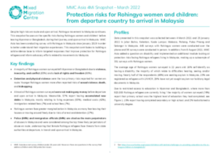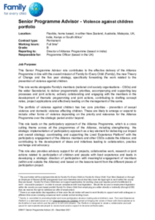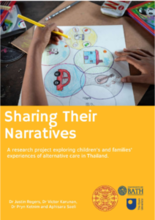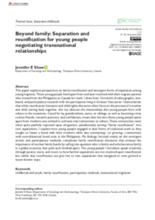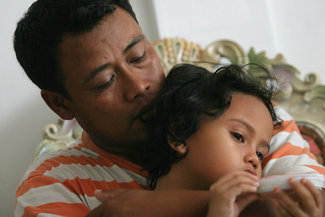

Displaying 71 - 80 of 752
Despite high risks en route and upon arrival, Rohingya movement to Malaysia continues. This snapshot focuses on the specific risks facing Rohingya women and children before leaving Myanmar or Bangladesh, during their journey, and upon arrival in Malaysia. MMC Asia has been conducting survey with Rohingya in Malaysia since January 2019 in order to better understand their migration experiences. This snapshot contributes to building a solid evidence base to inform targeted responses that improve protection for Rohingya refugees and inform advocacy efforts related to movements to Malaysia.
The Malaysian government does not have any plans to ban underage marriages, but women, family and community development minister Rina Harun says it remains committed to preventing such unions. She said there was a need to manage the issue through education, advocacy, strengthening the family institution and socioeconomic support in the community.
This webinar was hosted by the Transitioning Residential Care Working Group of the Transforming Children’s Care Global Collaborative Platform and showcased learning around the transition of residential care services.
The study was aimed at gaining insights into the operations of privately run, Christian faith-based residential care facilities (RCFs) in Myanmar. The outcomes of this analysis provide important insights to inform ongoing awareness raising, advocacy efforts, approaches to providing technical support and deinstitutionalization, and care reform strategies in Myanmar.
Salary:
GBP £50-55,000 equivalent - fixed in local currency. Salary will be determined based on experience and adjusted to the local market rate.
The overall aims of this research project were to explore the experiences of the children, parents and families involved in alternative care in Thailand. This research project reached a significant number of children (n.160) living in alternative care and their parents and families (n.20).
There are limited studies which investigate the perceived needs and wellbeing of parents caring for their children with disability from culturally and linguistically diverse communities. This qualitative study uniquely explored the experiences and cultural factors of Vietnamese parents caring for children with a disability in multicultural Australia.
यस अध्ययनले सातवटा केन्द्रित देशहरूमा २१ अर्ध-संरचित अन्तर्वार्ताहरू समावेश गरी गुणस्तरीय अनुसन्धान अध्ययन सञ्चालन गरेर निजी रूपमा सञ्चालित र वित्त पोषित आवासीय हेरचाह संस्थाहरूको सानो संख्यामा COVID-19 को प्रभावको अन्वेषण गर्दछ।
សាយយ័ន្តសួស្តីបងៗ និងប្អូនៗទាំងឡាយដែលធ្លាប់មានបទពិសោធន៍ជីវិតរស់នៅ ឬអ្នកកំពុងរស់នៅ រួមទាំងអ្នកត្រៀមចាកចេញពីមណ្ឌលកុមារកំព្រាជាទីស្រឡាញ់រាប់អាន ❤️️
ពួកយេីងសូមស្វាគមន៍អ្នកទាំងអស់គ្នា មកកាន់កម្មវិធីប្រពន្ធ័សារសំឡេងរបស់ @ក្មេងអង្គការកម្ពុជា Podcast។
(This is the first episode in a podcast series created by the Kmeng Onka Cambodia Care Leavers Network highlighting the lived experience of those living in residential care or are about to leave.)
This paper explores perspectives on family reunification and emergent forms of separation among young migrants. These young people lived apart from and later reunited with their migrant parents who moved from the Philippines to Canada for work.

